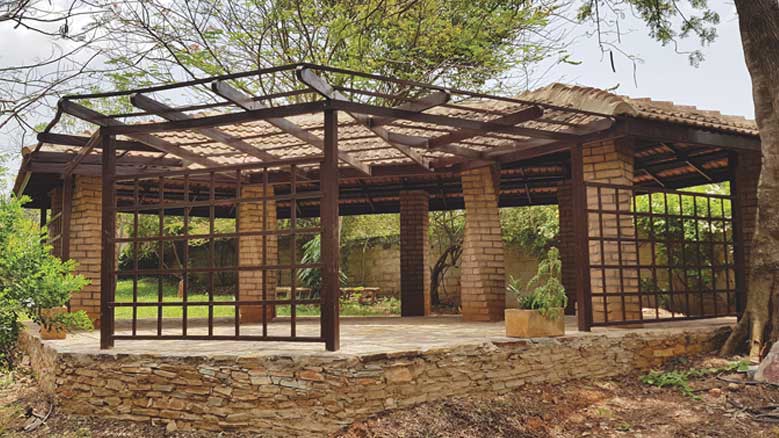
On many occasions in Christian circles in Ghana, the question is asked, “Where do you fellowship?” When I answer, “with the Quakers at Hill House at Achimota School,” a long conversation begins because most people have never heard of Quakers or the Religious Society of Friends.
The doubt is written on their faces when they learn of unprogrammed meetings of Quakers that do not have pastors.
I was blessed when a Friend named Frank Addo invited me to visit a meeting in the 1990s. He promised that I would like the meeting for worship because it’s different from other churches we used to attend. Indeed, I liked it and have continued to like it. Frank briefed me on what to expect at meeting: the silent worship; sharing of testimonies; discussions on various issues, including local, current, and international affairs. What attracted me most were Quaker testimonies: simplicity, truth, equality, peace, and sustainability. Quakers also appreciate that there is that of God in everyone, as we were made in the likeness of God. Though they question issues, they respect the views of everyone. Frank was introduced to Quakerism by a British philanthropist, Norah Court, who was having a library and a brick factory built in Ghana’s Volta Region.
The serenity that greeted me when I arrived at Hill House, the meeting place of Quakers in Ghana, was profound. In the 1920s, in what was then the Gold Coast, Achimota College was set up as an elite school based on a model of British public boarding school; many Quakers from the United Kingdom were recruited as teachers. They chose a secluded section higher than the surrounding area, away from bungalows. Hence where they worshiped was named Hill House. It was a modest, open structure at the western side of the Achimota Golf Course. In 1995, the thatched roof was replaced with roofing tiles. Though modern buildings have sprung up around Hill House, it remains a breezy, green island of plants, flowers, trees, and chirping birds.
A small plaque embedded in one of the structure’s ten pillars testifies that Quakers have been meeting there since 1934.
A small plaque embedded in one of the structure’s ten pillars testifies that Quakers have been meeting there since 1934.
Hill House has a checkered history. Reduction in the number of expatriate staff contributed to a fluctuating number of Quakers, and in the 1940s, meetings of Friends in the Gold Coast lapsed altogether. But in 1947 meetings were revived with worship alternating between Hill House and the home of a British sociologist, Ioné Acquah, who had married a Gold Coast civil servant, David Acquah. There was a lull in the activities of Quakers in the Gold Coast following the vagaries of civil service postings, coupled with the departure of early Quaker pioneers.
In early 1953, Ioné and David Acquah were reposted to Accra. There was a sizeable number of expatriate friends and their families at the new University of the Gold Coast, which occupied the same grounds as Achimota school and college. Another reason for the upsurge in Quaker activities in the country was the search among Ghanaians for a new religious experience; they sought and found an attraction to the Quaker way of worshiping and praying in silence.
Friends in the Gold Coast, now Ghana, initiated annual Easter Gatherings where all members from the then four meeting centers—Cape Coast, Kumasi, Tema, and Accra— would come together for fellowship over the Easter weekend. This grew bigger and bigger, with participants from neighboring countries in West Africa, and with West Indian, American, and European Friends also joining in. At that point, Friends in Ghana came under the umbrella of Friends World Committee for Consultation.
Quakers in Ghana are members of the Christian Council of Ghana. During the time the chairman was a Quaker, they began interfaith activities that enriched the Christian fraternity in a positive way.
Quakers have carried out a number of activities, supporting orphanages, the homeless, prisoners, and refugees. Friends also influenced the establishment of the Voluntary Workcamps Association of Ghana, which helped in lending a hand to mainly rural communities to carry out development projects. The camps brought together volunteers, especially students, from around the world together to work on projects during the holidays.
Following a bloody coup in 1979, the Armed Forces Revolutionary Council gained power in Ghana with the battle cry “Let the Blood Flow.” Quakers, influenced by their peace testimony, joined hands with other advocacy groups and individuals who were opposed to executions, and they successfully compelled the authorities to stop the atrocities and the excesses of the revolution.
The number of Quakers in Ghana constitute a very minute percentage of Christians in the country compared to other countries in Africa, but have contributed in many ways to peace and development. Hill House Meeting is now the only active meeting in the country. Members hope to revive discontinued meetings in the near future by reactivating some of the previous activities that attracted membership.
Having done some introspection, Hill House Friends have found out that the Quaker way of worship and the freedom to search is too simple or too difficult for the average Ghanaian, who would like to worship in an imposing church building with charismatic clergy, pray for miracles and prosperity amidst loud music, and “make a joyful noise to the Lord.”
Hill House does not have any intention of becoming a programmed meeting; members do not think the programmed way of worship is better. All visitors are welcome.
Hill House Meeting is an unprogrammed meeting, and on my visit to Rwanda for a Quaker Peace Network meeting in 2015, I found a contrast. Some friends from Eastern and Central Africa suggested that Quakers in Ghana could attract more to Hill House and have more meetings throughout the country if its unprogrammed meeting could be replaced by a programmed one. Yet Hill House does not have any intention of becoming a programmed meeting; members do not think the programmed way of worship is better. All visitors are welcome.
It was through education that Quakerism was introduced indirectly to Ghana by expatriate teachers, and there are plans to introduce and attract students at the college level by building upon the foundation laid by pioneers. Friends are concerned about the falling standards of education in Ghana, and Hill House is currently researching plans to make education more relevant.
Hill House is also interested in developing training programs in conflict prevention and resolution. Peace studies is still not taught at local universities. Quakers believe that its introduction could open the way for establishing peace studies as an academic and practical activity in the subregion, which has suffered a number of conflicts.
Though Quakers are few in West Africa, they need to strengthen ties among themselves in the subregion and Africa at large. We are looking to link all the isolated meetings. In 2017 Hill House hosted a group of Quakers who were members of the Fellowship of Friends of African Descent, led by Vanessa Julye from the United States.
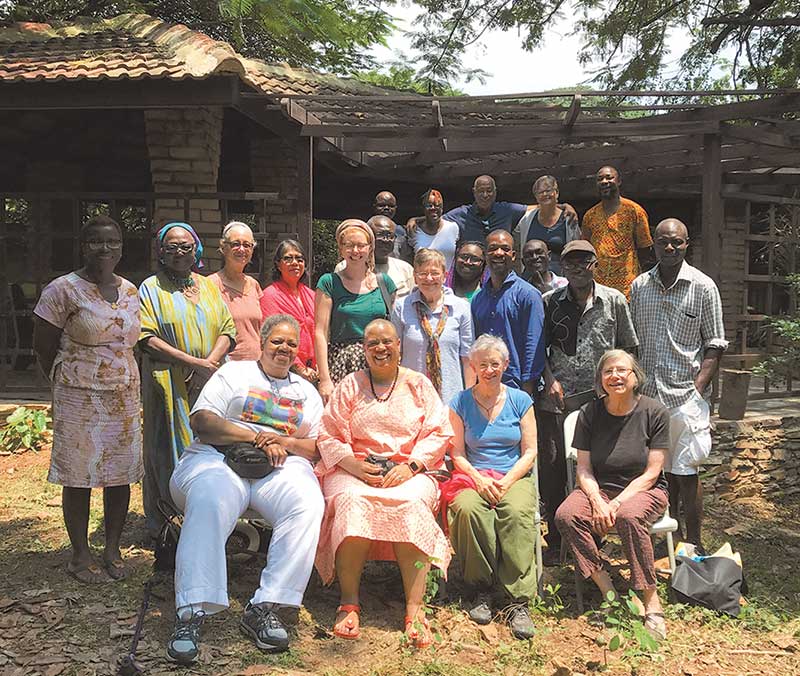
Stansted Meeting in the United Kingdom and Ghanaian Friends have started collaborative discussions through Skype meetings on previously agreed-upon topics. The last discussion was on “Applying Quaker Testimony to the Idea of Freedom: Independence or Interdependence.” This generated discussion long after the Skype session ended.
These are some activities Hill House would like to encourage with Quaker meetings in other countries.
Hill House is grateful to Friends around the world who supported raising funds to rehabilitate the meeting place and would appreciate more information on and assistance on improving education through management and training in peace studies, conflict prevention, and resolution.
The proverbial Ghanaian saying, “Ahwene Pa Nkasa,” translated as “precious beads do not make noise,” could be a reminder to Quakers and those of Hill House not to blow their horns. Should we continue, as we prefer, to remain silent and impact positively the lives of others by living according to the Quaker testimonies of simplicity, truth, equality, peace, and sustainability?
May these testimonies continue to guide us on our silent journeys.




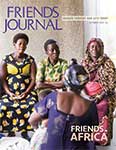
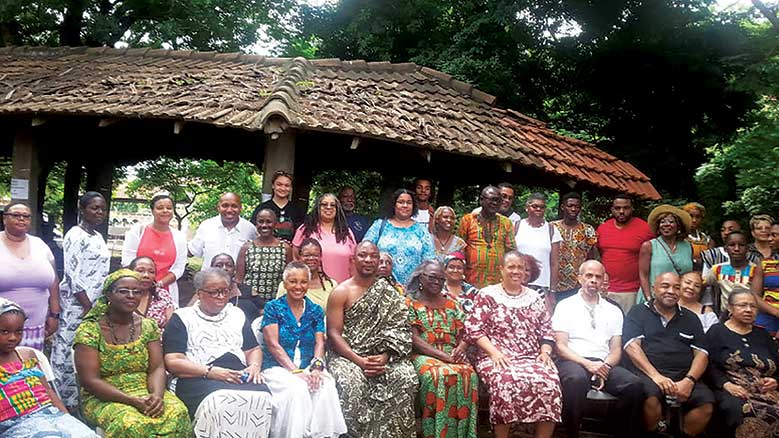
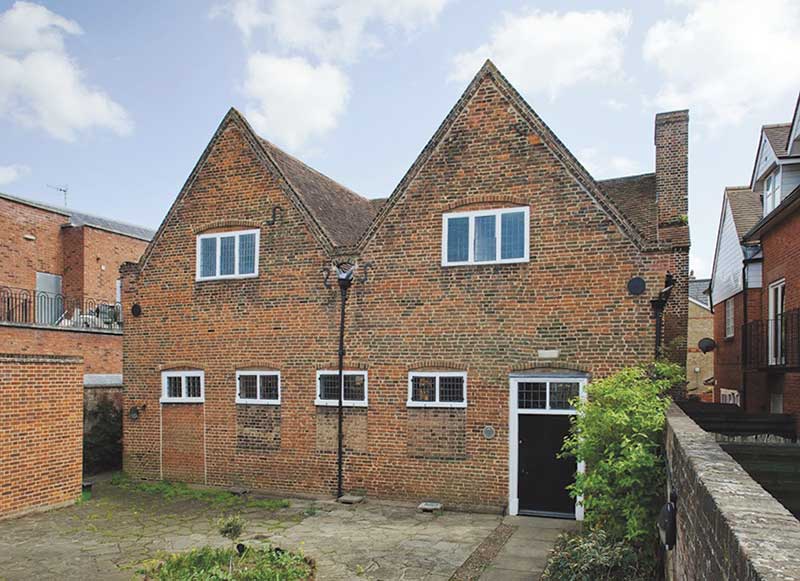
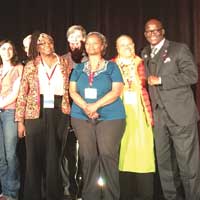
Thank you for sharing Hill House Meeting with others around the world. Kumah Drah. I finished reading your words with ideas to share with my Meeting in western Canada. The idea of Skype study sessions with another Meeting in another part of the world is brilliant!
Wishing you and other Ghanaian Friends all the best.
A lovely story and HI to Donna Sassaman who lives on Vancouver Island, not far from Victoria! Our Meeting, Vancouver Island Monthly Meeting, is contributing to the well-being of a Quaker Meeting in Burundi. We started with money to improve their medical work treating Aids patients. This money came from a Quaker bequest for that purpose. The bequest has been fully used and has made a difference in their ability to treat their patients. We continue to raise money through small events. They are now building a maternity clinic. Victoria Friends have enjoyed several visits from one of their pastors. The association has been rich and rewarding. The Friends Church is quite different from our unprogrammed Victoria Friends Meeting but we meet in worship and action through the universal medium of love.
Thank you for sharing, Kumah Drah. My father taught at the University of the Gold Coast. My mother worked as a nurse at Achimota. When I grew up I went to Achimota School. I lost touch with the community there when we left in 1961. I am delighted to see that Friends are still active there.
How wonderful to hear of life at the Quaker community at Hill House. We the Quakers in Nigeria tried unsuccessfully in the late 80s and late 90s to connect up with Hill House. We sent the Nigerian Friends Newsletter, which then had four editions a year, not one reply from Ghana. We finally gave up. We shall make fresh attempts.
Shima K Gyoh, (Clerk, Annual Gathering of Friends in Nigeria)
7 Ogri Oko Road
PO Box 7, Makurdi, Benue state
Nigeria.
Shima, Sorry for that. I shall report this to the meeting for redress. We are looking to linking up with friends in Nigeria. Ghana